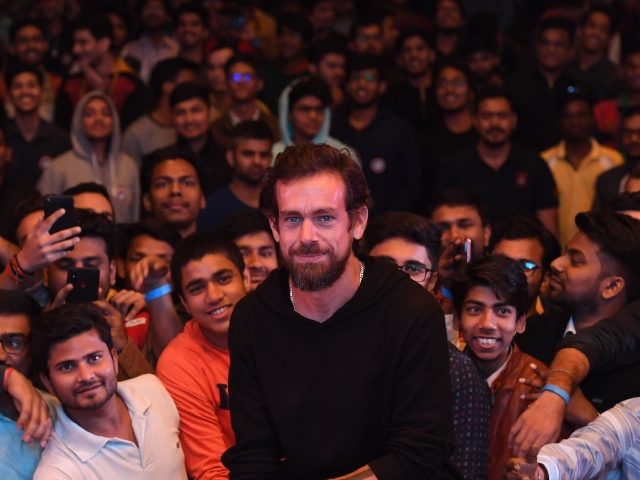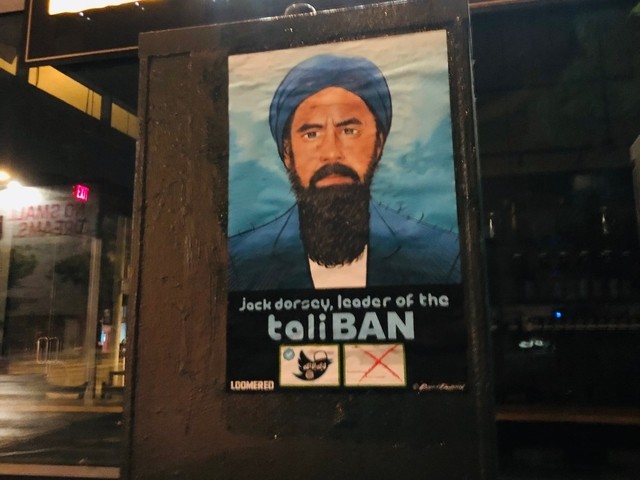The Supreme Court heard arguments today in Twitter v. Taamneh, a case seeking to hold Twitter responsible for aiding and abetting terrorism because terrorists have been able to use the platform.
Twitter, along with Facebook and Google, was sued by the family of Jordanian citizen Nawras Alassaf, who was killed in an ISIS terror attack in Istanbul in 2017.
Under the provisions of Section 2333 of the U.S. Anti-Terrorism Act, attorneys for Alassaf argued that Twitter aided and abetted ISIS because the Islamic terrorists were able to use the platform despite the platform prohibiting them from doing so. The Justice Against Sponsors of Terrorism Act (JASTA) amended the Anti-Terrorism Act in 2016 to introduce the aiding-and-abetting liability.
Twitter, the petitioner in this case, asking the Supreme Court to overturn a Ninth Circuit appeals court decision holding that tech companies could be liable under the ATA, and that protections for tech companies under Section 230 of the Communications Decency Act, which immunize tech companies from lawsuits regarding the carrying or deleting of third-party content, did not apply in this case.
The case hinges on the argument that tech companies that fail to keep terrorist content off their platforms, even if they formally ban them, may be held liable under the ATA.
This comes just a day after the Supreme Court heard arguments in Gonzalez v. Google, another case brought by a victim of an ISIS terror attack. That case argues the content pushed to users through recommendation algorithms are not protected by Section 230.
In both instances, the case against the tech companies is being made by attorney Eric Schnapper. Twitter’s attorney in today’s case was Seth Waxman. Deputy Solicitor General Edwin Kneedler also participated, presenting the U.S. government’s opinion on the case.
The ATA defines a person who aids and abets terrorism as someone who “knowingly provides substantial assistance” to a person who commits an act of international terrorism.
A key element of Twitter’s case rests on the argument that simply failing to removing ISIS content, unrelated to the specific attack in Istanbul, is not enough to meet the “knowing” or “substantial” test.
Justice Clarence Thomas delved into this part of Twitter’s argument.
“It seems that you tie your analysis to knowledge of the [Istanbul] attacks rather than just general knowledge about terrorists,” said Thomas, who went on to question Waxman on whether someone who lends a gun to a friend he knows to be a criminal should be liable, even if he has no knowledge of the specific plans of his friend.
Justice Sonia Sotomayor also pushed back on this argument, telling Waxman that “willful blindness is something that we have said can constitute knowledge.”
The Ninth Court used a broad definition of “knowingly” in its ruling against Twitter, ruling that providing generalized assistance to ISIS by failing to adequately remove supporters of the terrorist group from the platform was enough to meet the test. Even if Twitter had no knowledge of ISIS using the platform to plan the specific attack that Alassaf, the court held that its knowledge of ISIS activities on its platform was sufficient.
Waxman emphasized this in his arguments before the court, arguing that Twitter had to know about the specific act that killed Alassaf in order to be liable under the ATA.
“You have to know that you are providing substantial assistance to an act of international terrorism… that happened to be a terrorist attack that injured the plaintiff,” said Waxman.
Justice Ketanji Brown Jackson seemed unconvinced by this argument, telling Waxman “I don’t know that I see clearly that distinction,” between general support to ISIS And specific support for the Istanbul attack.
Justice Elena Kagan also expressed skepticism with Waxman’s claim that if Twitter simply took a hands-off policy to content, it would not be liable for terrorists utilizing it.
In that situation, said Kagan, “you’re helping by providing your service to those people with the explicit knowledge that those people are using it to advance terrorism.”
It wasn’t all bad news for Twitter. Justice Samuel Alito noted that “if this was a criminal case I think it’s clear it would not be aiding and abetting liability.”
Justice Brett Kavanaugh also compared Twitter’s allowing ISIS to use the platform to a TV station airing an interview with a terrorist leader, something Schnapper conceded would be protected by the First Amendment.
The U.S. government also supported Twitter in its petition, with Kneedler arguing that upholding the Ninth Court’s ruling could have a highly disruptive effect on the routine activities of businesses.
“We are concerned about not extending [JASTA] so far that legitimate business activities could be inhibited, that banks for example in underdeveloped parts of the world and charities that may depend on those banks, concerns that they may pull back as legitimate businesses,” said Kneedler.
The case is Twitter Inc. v. Taamneh, No. 21–1496, in the Supreme Court of the United States.
Allum Bokhari is the senior technology correspondent at Breitbart News. He is the author of #DELETED: Big Tech’s Battle to Erase the Trump Movement and Steal The Election.


COMMENTS
Please let us know if you're having issues with commenting.